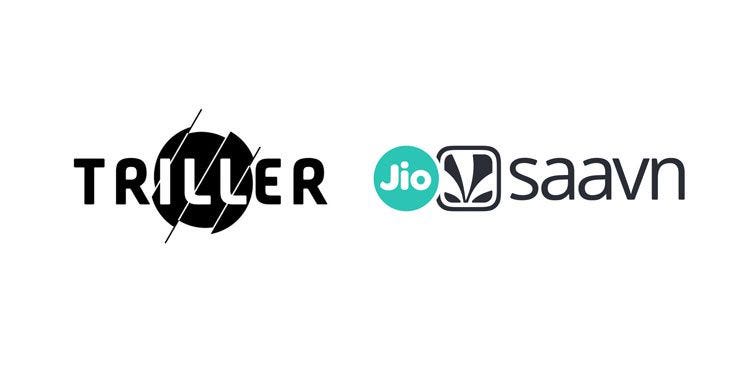Welcome to East West Hurricane! 🌪
We update you on the most essential news from Asia in tech, media, and business—the things you need to know that you probably haven’t heard in Western media.
Follow us on Twitter and Instagram! ⚡️
Triller Partnership With India’s Reliance 🎥
Triller is one of the biggest competitors to TikTok globally. It’s a US-based short-video mobile app that was released in 2015 and is very very similar to TikTok. Since the controversy around TikTok has increased over the past year, Triller has seen a huge increase in user numbers, with now 250 million total downloads globally. This week, Triller announced a partnership with JioSaavn, the Indian music streaming platform owned by Indian conglomerate Reliance. Users will be able to create Triller videos directly on the JioSaavn app.

JioSaavn has over 100 million monthly active users and provides services in India similar to Spotify. As I’ve written about before, Reliance is one of the biggest and most influential companies in India. They have received billions of dollars in new funding from companies like Facebook and Google over the last few months and are best placed to capitalise on India’s digital transformation. Last week, it was reported that Reliance was looking to potentially acquire TikTok. It looks like those talks may have fallen through as this partnership with Triller would be directly competitive against TikTok. With this new relationship, Triller now has a powerful ally with Reliance and even more chances of success in India.
Didi Expands to Russia and More 🇷🇺
This week, Chinese ride-hailing company Didi Chuxing announced that they have expanded their service to Russia. It’s focused on the specific region of the Tatarstan Republic, with operations in the city of Kazan. Didi has also been expanding in South America over the last few years and has set the goal of achieving 800 million active users globally. CEO Cheng Wei announced earlier this year that Didi has reached the milestone of 1 billion rides outside of China.

Didi is basically the Uber of China. In 2015, Uber had actually launched in China and became a major competitor to Didi. The fierce battles between the two companies resulted in Didi eventually acquiring Uber China in 2016. Ride-hailing has become one of the biggest tech industries and there are strong rivals in many different countries, like Uber, Careem, GoJek, and Grab. Watching where Didi plans to expand says a lot about their specific strategy. Didi expanding in places like Russia and South America also means they are not expanding in the competitive Southeast Asian markets, where ride-hailing is dominated by companies like GoJek and Grab.
Who Wants TikTok, Who Is Leaving TikTok ⏰
It’s wild how a single Chinese video app has created a geopolitical storm and one of the most contentious tech acquisitions in recent history. Ever since President Trump issued an executive order requiring TikTok to be sold by next month, several major US companies have been reported as potential buyers. At first, the obvious frontrunner appeared to be Microsoft. Now there has been talk about Oracle, Netflix, and most recently Walmart interested in buying TikTok. Most of these actual acquisition conversations happen behind closed doors, so we really won’t know the truth until things become official.

At the same time, Kevin Mayer, TikTok’s American CEO who joined the company four months ago, has just resigned from his new role. One can imagine that being TikTok’s CEO right now is probably one of the world’s toughest jobs. Again, we will never know the full story as major executive departures like this are usually the result of several internal factors unknown to the public. I am still bullish on TikTok. Amidst all the commotion and drama, the underlying product and audience are still unprecedented successes and that won’t die easily.















Share this post